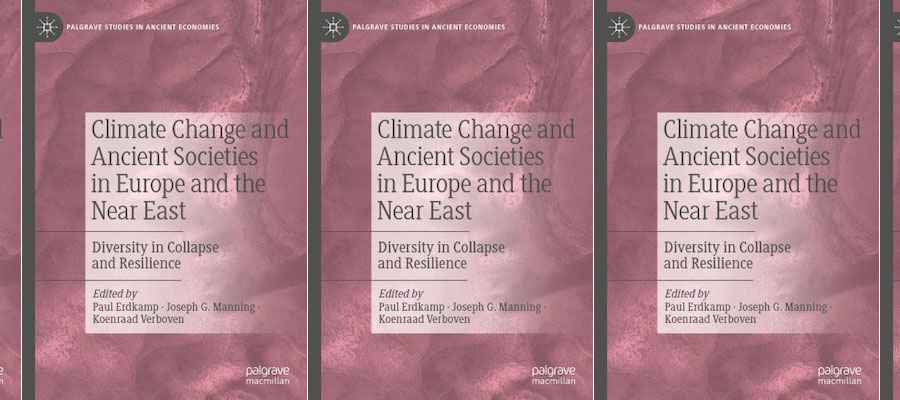Paul Erdkamp, Joseph G. Manning, and Koenraad Verboven, eds. Climate Change and Ancient Societies in Europe and the Near East: Diversity in Collapse and Resilience. Palgrave Studies in Ancient Economies. Springer International Publishing, 2021.
From Springer
Climate change over the past thousands of years is undeniable, but debate has arisen about its impact on past human societies. This book explores the link between climate and society in ancient worlds, focusing on the ancient economies of western Eurasia and northern Africa from the fourth millennium BCE up to the end of the first millennium CE.
This book contributes to the multi-disciplinary debate between scholars working on climate and society from various backgrounds. The chronological boundaries of the book are set by the emergence of complex societies in the Neolithic on the one end and the rise of early-modern states in global political and economic exchange on the other. In order to stimulate comparison across the boundaries of modern periodization, this book ends with demography and climate change in early-modern and modern Italy, a society whose empirical data allows the kind of statistical analysis that is impossible for ancient societies.
The book highlights the role of human agency, and the complex interactions between the natural environment and the socio-cultural, political, demographic, and economic infrastructure of any given society. It is intended for a wide audience of scholars and students in ancient economic history, specifically Rome and Late Antiquity.
